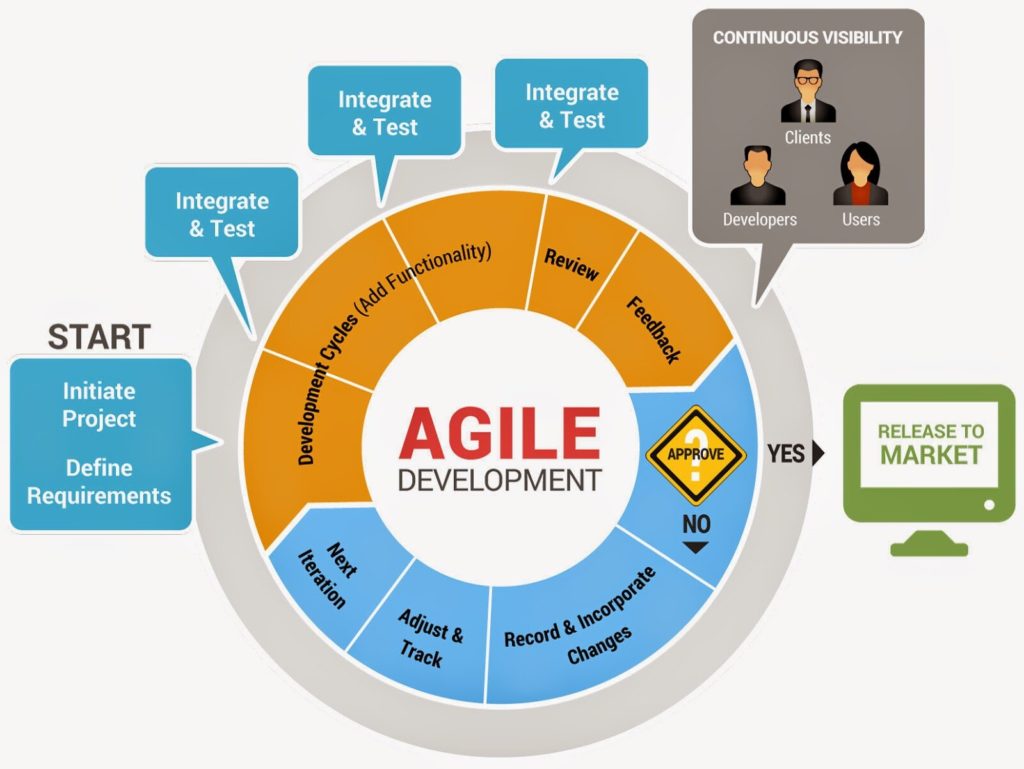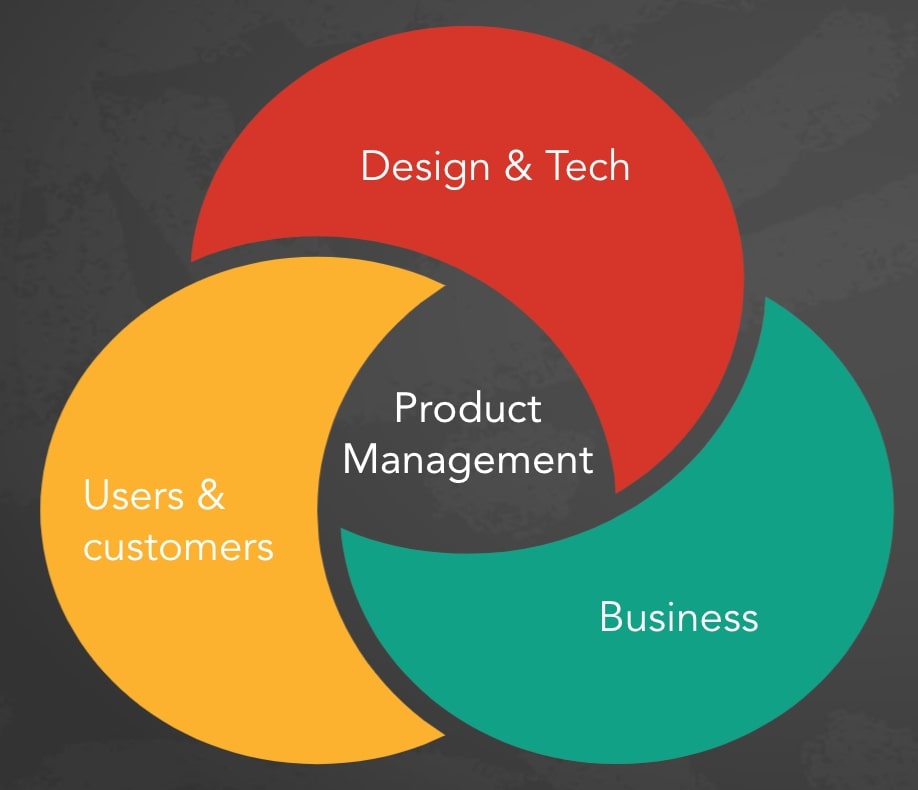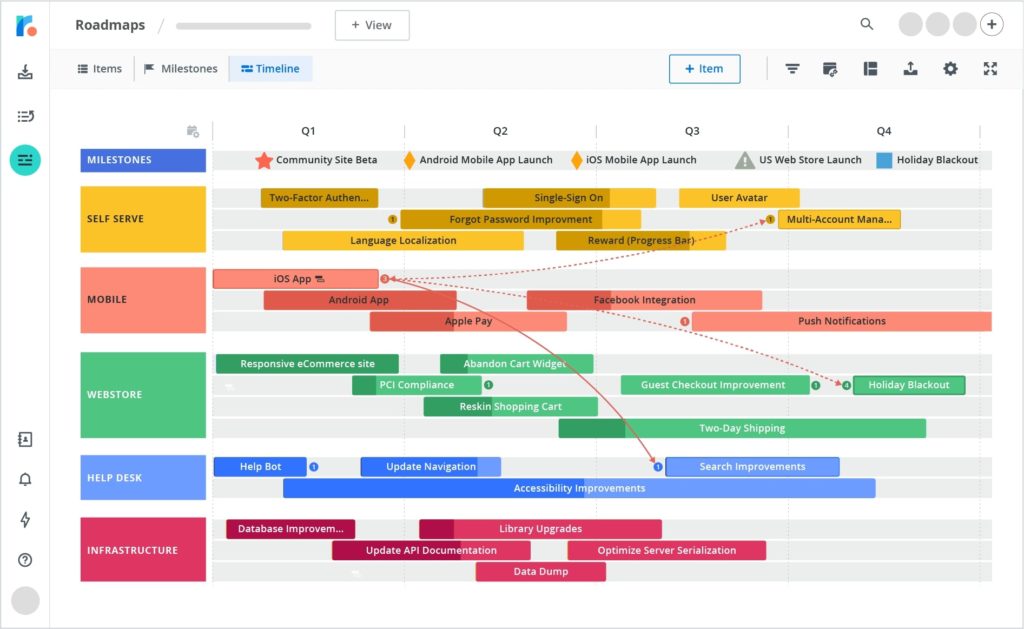Being a technical product manager is one of the most rewarding careers in the tech industry today.
The statistics don’t lie. According to Zippia, the average technical product manager in the United States earns as much as $119,141 a year. The same report goes on to show that the average starting salary for a technical product manager stands at $94,000 as of January 2022.
It is clear that pursuing a career in the technical aspects of product management is a lucrative avenue for professional development. That said, there is no clear and straight path to becoming a technical product manager.
However, there are a few pieces of advice that you must follow to help push you in the right direction to landing this type of job.
In this guide, we discuss some steps that you must take to become a successful technical product manager.
Let’s dive right in.
Step 1: Get Certified in Technical Product Management
The world of technology is in a constant state of evolution.
With it, we’ve also seen a significant increase in the number of products that incorporate technology in some way, shape, or form. More and more products are using more complex forms of technology in order to provide value to their customers.
As professionals who work in such a technology-driven field, technical product managers need to understand the technical intricacies of the products they are managing.
Grounding yourself in this knowledge is a major asset to you on the job. To start with, it means that you find it easier to grasp the technical demands and requirements of the product you’re working on.
This is an advantage to you when you begin liaising with the technical team as well as other relevant stakeholders in the product management process. It also means that you stand a better chance at anticipating development deadlines and managing the product roadmap.

Credits: Educore
Learning the technical aspects of product management is a tall order. However, there are certification programs that help steer you in the right direction. The Technical Product Management Course offered at Product HQ is a solid choice that helps you master the technical fundamentals of product development.

Step 2: Learn Fundamentals of Product Management
If you want to be a successful technical product manager, you need to know the fundamentals of your field of work. There are no two ways about it.
While product management as a field is still evolving, professionals have already conducted significant research as it is. There are established frameworks, approaches, best practices, and schools of thought that anyone seeking a career in this field needs to be familiar with.
That is why as a product manager, you have to master the underlying principles of product management.

This entails the following:
- Frameworks and approaches to create a cohesive product strategy
- Fundamentals of conceptualizing a product’s unique value proposition
- Design thinking and other product management processes
- Go-to-market strategies and plan
- Strategy formulation for market plans and product positioning within its target market
A course such as the Product HQ Product Management Course helps ground yourself in the fundamentals of this field. Discover the right frameworks to coordinate teams, take charge of the product lifecycle, and keep your product team engaged from beginning to end.
Step 3: Gain Formal/Informal Experience in Technical Product Management
In today’s competitive job market, certifying yourself in product management is not enough. Recruiters value candidates who have some form of experience in the field. The experience you gain is either formal or informal in nature.
Formal experience refers to apprenticeships, on-the-job training, and the responsibilities that come with a specific job related to technical product management. Jobs in the field of marketing, data analysis, product development, or product strategy are all solid choices that help you build experience in this niche.

Informal experience implies that you gain experience from a source that wasn’t an official job. For example, you may have volunteered in an organization that exposed you to skills, frameworks, and approaches associated with technical product management. In some cases, you may have acquired your skills from a mentor who taught you about being a technical product manager.
Both formal and informal experience in the field go a long way in helping you on your journey to becoming a technical product manager.
Step 4: Build a Portfolio
Landing a position as a technical product manager requires more than a one or two-page resume. According to Zety, corporate job openings receive an average of 250 resumes. Having to read through hundreds of resumes that look the same is not fun for any recruiter.
You need to stand out. Although a resume does summarize the highlights of your experience, skills, and achievements, a work portfolio helps you distinguish yourself from other applicants.

Credits: Roadmunk
While it is true that a professional work portfolio doesn’t work for every industry, it does help you like a product professional to showcase your talent. Prospective technical product managers benefit from creating a portfolio.
If you have done any projects in programming or software development and you document your work, then be sure to include it in a portfolio. This is an opportunity to show a prospective employer the achievements you’ve been a part of.
That’s much more powerful than one line on a resume.
Here are a few tips on how to build a portfolio.
1. Use Appropriate Examples of Your Work
Whatever examples you use, ensure that they are all relevant to the industry you’re in. If you’ve highlighted specific background skills and experience in your resume, make sure your examples showcase the skills you’ve developed.
2. Use Visual Aids
This doesn’t mean you need to include props. But if you’ve been involved in a product roadmap, you could include images showing the evolution of a product.
3. Keep it Short and Simple
Do not burden recruiters with extensive portfolios. Focus on what is necessary. Make sure your portfolio is easy to navigate, with limited text, and pictures that speak 1000 words.
Step 5: Study Industries Associated With Technical PM
Familiarize yourself with the industries that technical product managers work in. This goes beyond the traditional SaaS industry.
Instead, you need to look at which types of companies are looking for technical product managers. You must then study the ins and outs of those industries.
On one hand, this helps you understand the pain points and problems that companies within given niches experience. In turn, you get a better idea of how you provide a sustainable solution to them as a technical product manager.
It also means that you earn useful insight that helps you when going into a job interview. Not only does it instill confidence in you but it also provides evidence to the interviewer that you’ve done your homework.
How to Become a Technical Product Manager With no Experience
In order to become a technical product manager, you need to start somewhere.
This type of job is similar to that of a traditional product manager only with a set of added skills that you need to dominate. Segwaying into a job as a product manager and get the relevant technical training makes it easier to transition into a technical product managerial role.
If you already have the technical skills but lack managerial knowledge, start off in a development team. Observe your team leader or manager and take note of how they run the team. Be sure to incorporate those practices that you think are effective while you stay clear on those that were not so useful.
Whatever you do, don’t despair. If you have the required skill set, companies still want to hire you. After all, many who assume a technical product management role train while on the job.
Prepare Yourself for Your Next Technical Product Manager Role
While you may get away with a lack of formal experience, there are several education and skills requirements that you need to fulfill this role. If you have a goal of becoming a technical, you benefit from completing degrees, classes, or certification courses.
The following is a partial list of majors that most technical PMs have:
- Business
- Computer Science
- Electrical Engineering
- Computer Engineering
- Mechanical Engineering
- Computer Information Systems
- Marketing
- Chemical Engineering
- Engineering
- Finance
- Management
- Information Technology
- Communication
- Electrical Engineering Technology
- Mathematics
- Economics
And here are the skills you need to bring to the table. If you don’t have them, you’ll know what you need to work on.
Soft Skills:
- Analytical skills
- Communication
- Leadership
- Organizational effectiveness
- Time management
Hard Skills:
- Technical Product
- User Interface
- Product Management
- Cloud
- Project Management
- Business Process
- Scrum
- Quality Assurance
- Software Development
Always remember to stay sharp and hone your skills even after you’ve landed a job as a technical product manager.
Technology is evolving every day. The only way to ensure that you stay on top of your field is to keep up to date with the latest developments in technology.
Once you do that, you are on your way to cementing a successful and fruitful career in technical product management.